- Home
- Alton Gansky
A Treasure Deep
A Treasure Deep Read online
A Treasure Deep
Alton Gansky
Copyright 2012
Smashwords Edition
Smashwords License Statement
This ebook is licensed for your personal enjoyment only. This ebook may not be re-sold or given away to other people. If you would like to share this book with another person, please purchase an additional copy for each reader. If you’re reading this book and did not purchase it, or it was not purchased for your use only, then please return to Smashwords.com and purchase your own copy. Thank you for respecting the hard work of this author.
ISBN: 9781301534517
All rights reserved. No part of this book may be reproduced without written permission, except for brief quotations in books and critical reviews.
Scripture quotations taken from the New American Standard Bible®, Copyright © 1960, 1962, 1963, 1968, 1971, 1972, 1973, 1975, 1977, 1995 by The Lockman Foundation Used by permission." (www.Lockman.org)
ABOUT THE AUTHOR
Alton Gansky is the author of 4o books, novels and nonfiction. He is a former firefighter, architectural project manager, and Christian minister. He resides in Central California. www.altongansky.com
To Mike and Cathy Fell,
longtime and supportive friends.
—AG
Prologue
HIS LEGS WERE ON FIRE, the muscles mere kindling in a blast furnace of exertion.
He stumbled ahead, forcing one foot to follow the other. Each step splashed through inky puddles on the asphalt. The cold rain that fell, feeding the coursing gutter rivers and the asphalt ponds, did nothing to cool the electric heat charging through his body. His chest tightened again, squeezing as if he were in the hand of a malevolent giant intent on slowly crushing him until his eyes popped and his ribs shattered like late summer twigs.
Another step; another stride; he couldn’t—must not—stop. Pain was irrelevant; escape mandatory. Weary legs protested and sent the fire in them burning to his lungs. He was no longer inhaling; he was gulping for air like a fish tossed on a cold, dark shore.
Water from the storm poured through his hair and into his eyes. Would the case be secure enough? Would the rain get in? That would be disastrous; a loss of historical significance. He clutched the leather satchel to his aching chest and swallowed more air.
He moved more slowly now, not by choice, but because his old body could offer no more. Too many decades had passed; too many years had piled upon his stooped shoulders.
Still he ran. He had run from the car when the attacker pushed him from the road. He had run along the vacant downtown Seattle street, and now he ran down a narrow alley. Light from street lamps pushed back the predawn darkness with a jaundiced glow.
Dr. Jamison Henri played no games with himself, held no foolish hope of escape. This alley was the gullet of the monster that would bring his death. He knew that this was the last day of his life, that his existence could now be numbered in moments. The face of his wife flashed into his mind with the intensity of a strobe light. He could see her gray-black hair and crooked smile. “You be careful, old man,” she’d said this morning as he walked from the house. “I want you back.” He’d assured her that he would be home in time for dinner.
He’d been wrong.
Now he needed to hide. The wet footfalls of his pursuer echoed down the alley. To his ear they sounded like the beat of a kettledrum. The man was coming. Unlike Dr. Henri, the attacker merely walked. Henri had seen that each time he had cast a fearful glance over his shoulder. Walking was all that was necessary. Henri couldn’t run far, and he couldn’t run fast.
“Hide it,” Henri mumbled to himself. “Let God protect it. Please, God, don’t let that man have it.”
A sharp pain dug deep below his sternum as if someone had driven a spike there with a hard blow from a mallet. A deep groan spewed from Henri’s lips, and he doubled over. Only the strength that came from fear kept him standing.
Heart attack. Again. He’d had such an episode two years before and knew the symptoms well: tightness in the chest, difficulty breathing, pain spreading from his chest to his left arm. Open-heart surgery had saved his life then, but there would be no saving him this time.
Another step, then another. His feet felt weighted with lead, and his knees threatened to buckle. Tears came to his eyes, not from the pain in his chest, not from the fear of death, but from the realization that this act of violence would crush his dear wife. “Dear, gentle Claire,” he whispered. Thirty-five years she’d been by his side. They’d traveled the uncertain paths of life in unison, reared a special child together, and fallen more in love with each passing day. His death, he knew, would wound her with a grief that would never heal. His attacker was killing two people.
“Where ya goin’, Pops?” The attacker’s first words. His voice was cold and hard as ice. “Ain’t no place to run, old man.”
“Leave me alone!” Henri called back. What a stupid thing to say, he thought. No words would appease the animal behind him—there was more demon in him than human. Henri stumbled to the side, his shoulder slamming into something hard. The large object gave off a hollow sound. He clawed the metal dumpster, using it to steady himself before trying to run again.
“I’m younger than you by thirty years, old man. You really think you can outrun me?”
Henri clutched the satchel even tighter to his heaving chest, as much to protect it as to ease the pain of his heart. His body was betraying him when he needed it the most. He started forward again.
There was an ear-popping crack, and Henri was spun around. A half second later a new pain flooded his body, and he immediately knew what had happened. The pursuer had shot him. Instinctively, Henri dropped a hand, grabbed the back of his left thigh, and found it sticky wet. He turned around and tried to take another step, but only his right leg was working. Henri thought the bullet had shattered the bone in his left leg.
There would be no more running.
He hopped once in a brave effort to distance himself from the criminal behind him and to protect the precious bundle in his arms. It was one hop too many. Dr. Jamison Henri fell to the wet, trash-littered alley. The asphalt met him with unforgiving resistance, his head bouncing off the hard surface and his shoulder driven from its joint. The new pain didn’t matter; his brain could embrace no more anguish. “I’ve failed,” he said. “I’ve failed the world. I’ve failed God.”
He began to weep.
“Crying don’t move me none, Pops.”
Henri rolled onto his back and looked up into the dimly lit face of his attacker. He was smiling in the yellow light. It was a smirk of pleasure.
“I’ve failed,” Henri mumbled between sobs. “God forgive me, I’ve failed so badly.”
“That you did, old man. That you did.” It was too dark to make out details, but the attacker’s voice and manner made Henri think that he was facing a young man. What had he shouted? Something about being “thirty years younger.”
Through tear-washed eyes, Henri watched the attacker raise his hand. Despite the dim light, Henri could make out the outline of a gun. “The bag goes with me, Pops.”
“No,” Henri protested. His heart seized for a moment, then returned to its irregular, ineffectual beating.
“No?” The attacker laughed. “I don’t think you can do anything about it.”
Henri’s eyes focused on the muted outline of the man’s finger. He could see it begin to tighten.
“Whatcha think? Head shot? Or maybe the throat? Hmm. Decisions, decisions. I know, how about—”
The attacker was gone.
Henri blinked, and in that time, he heard a hollow crash. Something had hit the dumpster. There was a cry of pain. There was another crash; then Henri caught a glimpse
of a body staggering backward across the alley. There was another sound, one of metal skipping along the asphalt. The assailant had lost his gun.
“Stay out of this,” the attacker shouted. “This ain’t no concern of—”
There was another sound, much softer. The attacker back-pedaled into the alley wall, closely followed by another form. A man. Henri rolled on his side to better see what was happening. The man was taller than the attacker, and he was giving no quarter. Before the gunman could regain his footing, the stranger threw a punch that landed squarely on the jaw. Dr. Henri’s attacker went weak in the knees and stumbled forward, only to be driven back with an uppercut that nearly lifted him from his feet.
The gunman dropped face first to the wet pavement. The stranger stood over the still form for a moment, then approached.
“No,” Henri said. “You can’t have it. It’s too important.”
“Settle down,” a smooth, strong voice said.
Henri watched as the stranger reached to his side. A gun! Henri thought. A second later he saw, not a gun, but another small device appear in the man’s hand. He raised it to his head and spoke: “Nine-one-one.”
PERRY SACHS HELD the phone to his ear with his left hand while the voice-activated dialing feature of the cell phone placed the emergency call. He exercised his right hand, extending his fingers and clinching them into a fist, gritting his teeth as he did so. No broken fingers, but he was sure he’d damaged something. He didn’t know the unconscious man lying on the damp pavement, but he did know that he had a very hard head.
Perry Sachs had rounded the corner in his BMW after a late night session reviewing drawings for an industrial project in Canada. Tomorrow he’d scheduled a meeting with project engineers, so he had stayed late at the office to prepare. The last thing he’d expected to see at two in the morning was an elderly man running from the scene of a fender bender. At least, Perry had assumed it was a fender bender. The man who walked quickly after the elderly gent caught Perry’s attention. There was something about his manner—something that couldn’t be explained but that made the hair on Perry’s neck stand on end. Pulling to the side of the deserted downtown street, Perry exited the car and followed at a discreet distance. He watched as the old man turned down an alley. Not wise, Perry thought. He picked up his pace.
“Ain’t no place to run, old man.” Perry heard the words. They were hot with threat. A second later, he heard the crack of a gun. His first urge was to turn the other way and run for the safety of his car, but Perry was not one to surrender to urges. He peeked around the corner of the alley and saw the second man standing over the first. He watched as the standing man raised his arm. Perry knew what was coming.
Words were exchanged between the downed victim and the gunman. Perry chose to ignore the conversation, grateful that they gave him the two things he needed most: time and surprise.
“Whatcha think?” the gunman asked. “Head shot? Or maybe the throat? Hmm. Decisions, decisions. I know, how about—”
Perry stepped within arm’s reach and seized the attacker by the shoulders from behind, grabbing the material of his coat in tight-wadded fists. With all his strength, he pulled back and spun around, dragging the attacker with him. The man stumbled back, losing his balance, exactly what Perry had hoped for. Perry continued his spin, releasing the attacker at the last possible moment. Momentum sent the man cascading backwards into the side of a large dumpster next to the alley wall. He hit the metal container hard and dropped to a sitting position. The gun he held had come loose from his grasp and bounced down the alley. Perry was on the offensive before the startled thug could shake loose the surprise that stunned him. Clutching the front of the man’s shirt, Perry pulled with all his might, yanking the man from the ground. The gunman said something, but Perry wasn’t listening. He did, however, hear a thick thud as the man’s body slammed into the alley’s other wall.
That should have been enough to take the wind out of anyone’s sails, but the man straightened himself and shouted, “Stay out of this! This ain’t no concern of—”
Perry finished the conversation with a right fist to the attacker’s jaw and a sharp uppercut. Pain ripped up Perry’s arm as his knuckles made contact. The gunman dropped like a board. Moments ticked by, and Perry waited for the man’s next move. There was no next move, just the paralysis of unconsciousness.
Turning his attention to the victim on the ground, he approached slowly.
“No,” Henri said. “You can’t have it. It’s too important.”
“Settle down,” Perry said softly. Pulling his cell phone from its belt clip, he called 911. His words were firm, calm, and to the point. He gave his name and location, then added, “There’s been an assault. Shots fired. We need an ambulance and police.” The operator asked a few questions, which he answered quickly before hanging up.
Now he looked down at the man before him. Even in the little light that was available, he could see that the gentleman was in bad shape. His face was screwed into a scowl of pain and fear. “Did he hurt you?”
“My chest. My heart. My leg.”
The man wore a suit and tie. Perry quickly loosened the tie and unbuttoned the collar. “Help’s on the way.”
“They can’t have it,” the old man said. “It’s too important. Secret . . . until the right . . . time.” He was struggling to breathe.
“The police will be here in a minute, sir. I’m sure they can sort things out.”
“No . . . you don’t understand. They won’t know . . . wrong hands . . . disaster.” He convulsed, and Perry reached down to support his head. He saw the man clutching what looked like an old leather attaché case.
“Why don’t you set that down?” Perry suggested. “You’ll be more comfortable.”
“No. Can’t.”
“I can put it under your head. You can use it as a pillow, and you’ll know right where it is.”
The man began to sob. “I’ve failed. I’ve failed the world. I’ve failed God.”
“Take it easy, friend,” Perry said. The man was working himself into a frenzy—the last thing he needed if he was having a heart attack.
The seizure eased. “I’m too weak. The strain . . . too much.”
“Just take a few deep breaths,” Perry said softly, wishing that he had hit the attacker harder than he had. To do this to an elderly man was beyond reason, even for a street thug. Distract him, Perry thought. Get him to think about something else.
“My name is Perry. What’s yours?”
“Henri. Dr. Jamison . . . Henri.”
“You’re a medical doctor?”
Henri shook his head. “Teacher. North Pacific Seminary. New Testament . . .” He seized again. A moment later he took a deep breath and said, “Take it. I have to trust you.” He released his arms from around the leather case. “Let no one have it. Trust no one. Learn from it. Promise me. Learn from it. Protect it.”
“Everything’s going to be fine—”
“More important than . . . everything. Belongs to world . . . but wait for the right time. More to be done. Joseph . . .” He convulsed again then went limp in Perry’s arms. A wet gurgle rose from his throat.
“Stay with me, partner,” Perry said. “Dr. Henri?” Nothing. Perry lowered the professor’s head to the cold ground and placed two fingers on the man’s throat. There was no pulse. Quickly, Perry set aside the leather case, tilted the professor’s head back, placed his mouth over the old man’s gape, and blew into his lungs. No response. With the urgency fueled by desperation, Perry tore the man’s shirt open, ran a finger down his sternum, noted the aged scar from a previous surgery, found the end of the sternum, placed his hand a few inches farther up, and began compressions.
“One, two, three, four,” he counted to himself. “Come on, buddy, stay with me. You made it his far—don’t quit now. One, two, three, four.” A cracking sound, like the breaking of pencils, erupted into the darkness as the man’s ribs gave way. In the distance, the sharp ca
ll of sirens saturated the wet Seattle night.
“One, two, three . . .”
Chapter 1
THE GROUND TWELVE hundred feet below Perry Sachs’s feet scrolled by in a 110-mile-an-hour blur. He knew it was he who was moving and not the ground, but the plush interior of the Augusta A109 Power helicopter and the finely honed skill of the pilot made it feel otherwise.
The craft, aided by a spring sun directly overhead, cast a shadow that ran along the supple, green hills like a child on a bicycle trying to outrace his father’s car. Unlike many mountainous places he had visited, Perry saw that these hills lacked sharp angles, deep gouges, and jutting rock faces. Here the hills looked like ocean swells frozen in place. Where mound met knoll there was a smooth, sinuous valley. An abnormally wet Southern California winter had left the towering hills decked in a deep carpet of green punctuated by the thick trunks and outstretched limbs of ancient oak trees. The dark leaves of the trees contrasted with the lighter bottle-green of the wild grass. To him, the trees looked like monks stretching prayerful hands to the sky.
Perry was tired, his neck hurt like a bad tooth, and his eyes burned. He’d slept only a handful of hours over the last few days. Two nights ago he had “hopped the pond” from Edinburgh, Scotland, to New York after a weeklong consultation with the European branch of Sachs Engineering. Travel was one of the perks of being vice president of the firm and the founder’s son, but it was also one of the curses. Losing sleep had never been a problem for him, but now at the age of thirty-eight, it was more difficult to do and much less fun.
The hopping continued from the Big Apple to Atlanta then on to San Diego where he arrived at one that afternoon. He then made his way through the Lindbergh Field terminals until he found the company’s bright yellow helicopter warming up on one of the helipads. Sachs Engineering was painted along the craft’s body in maroon letters. Still dressed in the dark blue suit he’d worn at his last meeting in Scotland, he boarded the aircraft and found he was not alone. Five minutes later, everyone aboard the A109 was airborne and headed north.

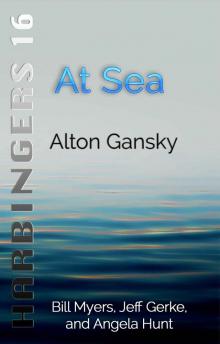 At Sea (Harbingers Book 16)
At Sea (Harbingers Book 16)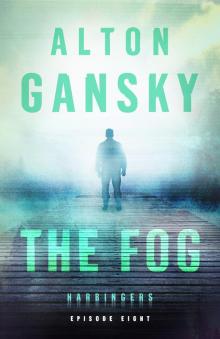 The Fog
The Fog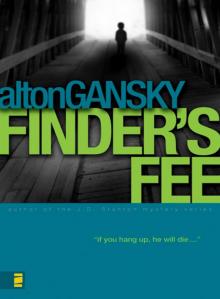 Finder's Fee
Finder's Fee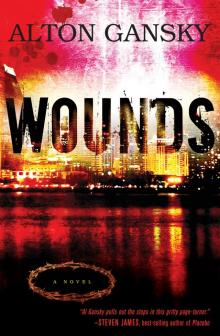 Wounds
Wounds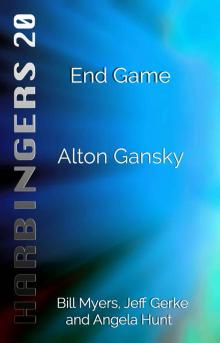 End Game (Harbingers Book 20)
End Game (Harbingers Book 20)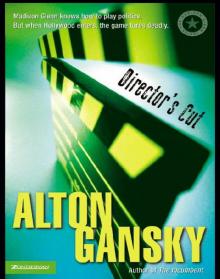 Director's Cut
Director's Cut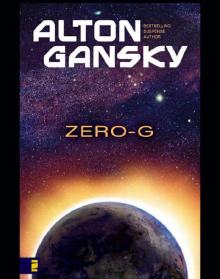 Zero-G
Zero-G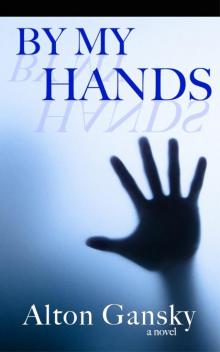 By My Hands
By My Hands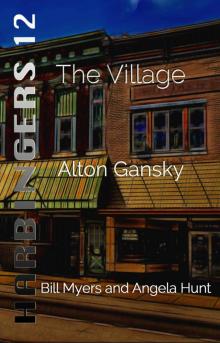 The Village (Harbingers Book 12)
The Village (Harbingers Book 12)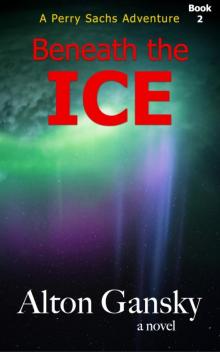 Beneath the Ice
Beneath the Ice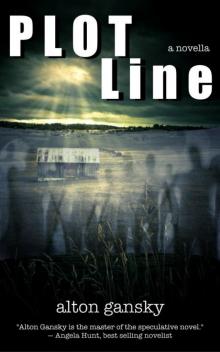 Plot Line
Plot Line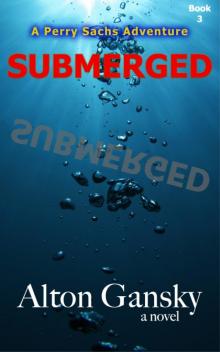 Submerged
Submerged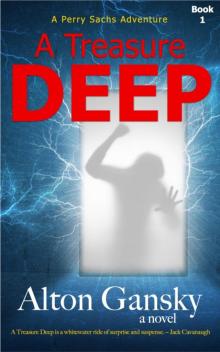 A Treasure Deep
A Treasure Deep